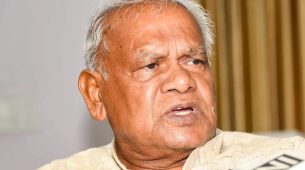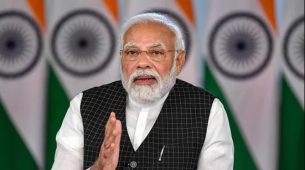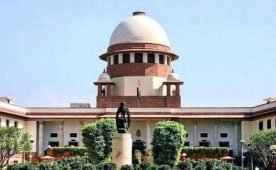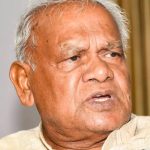Cbi War Spills To State Vs Centre: Andhra Pradesh, West Bengal Bar The Agency indianexpress.com
There was no immediate comment from the CBI but a former officer of the agency, who handed policy matters, said “withdrawal of consent simply means that CBI officers will lose all powers of a police officer as soon as they enter the state unless the state government has allowed them”.
Escalating the political fight between non-BJP ruled states and the Centre in the run-up to the 2019 elections, TDP-ruled Andhra Pradesh has withdrawn the general consent given to the CBI to investigate any case in the state. This comes days after Chief Minister N Chandrababu Naidu accused the BJP and the Centre of using central agencies to destabilise his government. Officials said the CBI will no longer be able to carry out searches, raids or investigation in Andhra Pradesh without the state government’s consent. Late Friday, West Bengal was planning similar action with Chief Minister Mamata Banerjee backing the Andhra Pradesh move.
“Andhra Pradesh CM Chandrababu Naidu has done the right thing in saying he won’t allow CBI in his state. We will also do the same in our state. We will cross-check the laws. They (the BJP) are giving instructions to agencies from their party offices. From CBI to RBI, they have turned institutions into disasters,” Banerjee told TMC workers.
Also read | Setback for CBI chief, SC tells him reply to CVC findings
AAP leader and Delhi Chief Minister Arvind Kejriwal, in a tweet, said: “Chandrababuji has done the right thing. Modi is misusing the CBI and Income Tax department…”
There was no immediate comment from the CBI but a former officer of the agency, who handed policy matters, said “withdrawal of consent simply means that CBI officers will lose all powers of a police officer as soon as they enter the state unless the state government has allowed them”.
The BJP reacted angrily, saying Opposition parties have formed a “grand alliance of most corrupt parties to protect their interests”. Calling the Andhra Pradesh move a “clear malafide exercise of power”, BJP MP and its national spokesperson G V L Narasimha Rao told reporters: “A nervous and completely rattled Naidu is trying to save his government.”
The Andhra Pradesh government order comes at a time when Chandrababu Naidu is trying to rally non-BJP parties for an alliance in the run-up to the 2019 state and Lok Sabha elections.
Naidu has accused the BJP of conspiring with Andhra Pradesh Opposition leader Y S Jagan Mohan Reddy to topple his government by using the CBI and Income Tax department. The I-T department had recently searched premises allegedly linked to TDP MP C M Ramesh.
The Home Department GO number 176, issued on November 8 by Principal Secretary A R Anuradha, stated: “In exercise of power conferred by Section 5 of the Delhi Special Police Establishment Act, 1946 (Central Act No 25 of 1946), Government hereby withdraws the general consent accorded in GO No 109 Home (SC.A) Department dated August 3, 2018 to all members of the Delhi Special Police Establishment to exercise the powers and jurisdiction under the said Act in the State of Andhra Pradesh.’’
The CBI was established under the Delhi Special Police Establishment Act. An official of the Home Department l said that while Section 5 of the Act gives powers to the CBI over all areas in the country, Section 6 states that without the consent of the state concerned, it cannot enter that state’s jurisdiction.
On August 3, 2018, the Andhra Pradesh government, like other states, had renewed the general consent given to CBI. But three months later, it has been withdrawn. Naidu has accused the BJP of conspiring with Andhra Pradesh Opposition leader Y S Jagan Mohan Reddy to topple his government by using the CBI and Income-Tax department.
Presently, no major CBI case is being investigated in Andhra Pradesh. The cases of meat exporter Moin Qureshi and businessman Sana Sathish Babu are registered in New Delhi. There is ambiguity, however, on whether the agency can carry out a search in the state in connection with an old case without the consent of the state government.
An October 11, 2018 order of the Delhi High Court makes it clear that the agency can probe anyone in a state that has withdrawn “general consent” if the case is not registered in that state. The order came on a case of corruption in Chhattisgarh. The court ordered that CBI could probe the case without prior consent of Chhattisgarh government since the case was registered in Delhi.
This is not the first time that a state government has revoked “general consent” for CBI probes. Several states, have done it in the past. The case of Karnataka stands out. In 1998, the Janata Dal-led government of J H Patel in Karnataka had similarly withdrawn general consent to CBI. When the S M Krishna-led Congress government took over the reins of power in 1999, it did not feel the need to revoke Patel’s order. Leader of the Congress in Lok Sabha, Mallikarjun Kharge, was then Home Minister of Karnataka.
“It wasn’t renewed for eight years. The CBI had to virtually close down its office,” recalled an officer who was with the CBI then. He said the agency had to seek permission of the state government for every case and every search, making it difficult to carry out surprise searches, or register a case not agreeable to the state government.







Leave Your Comment